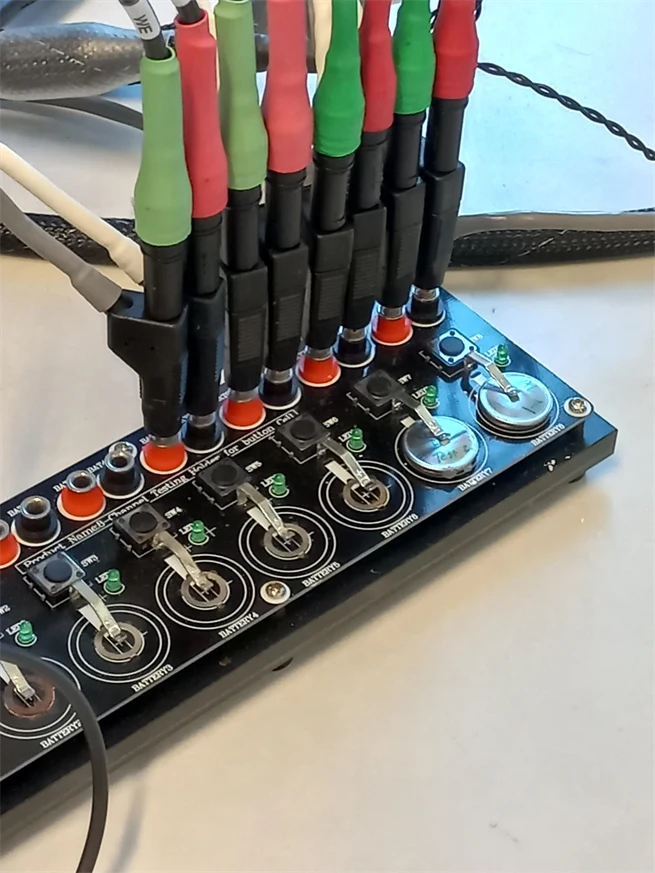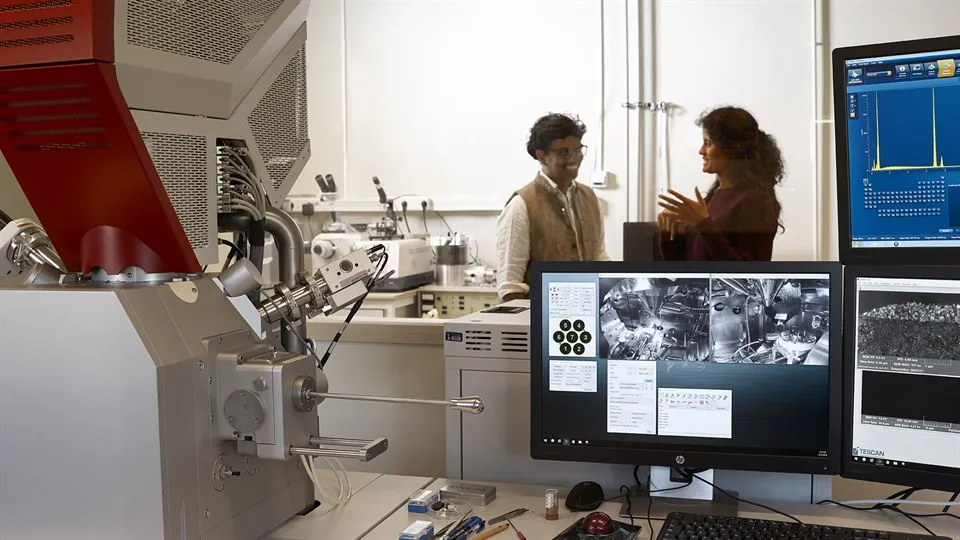The battery researchers are curious about the new battery site for anodes in Torsboda
For more than five years, researchers at Mid Sweden University have worked to develop batteries and battery technology. Now the topic is "on everyone's lips" due to the news that an anode factory is to be established just north of Timrå.
The battery researchers at Campus Sundsvall follow the development with great interest
"It is a fantastic advantage for our researchers that they establish the anode site here in Sweden, close to campus Sundsvall, and we also believe that the battery research we are conducting can be beneficial for the company Shanghai PTL. We hope that we can contribute with scientific expertise and, in the long term, train personnel with deep knowledge in battery manufacturing. Then we can further develop and integrate research and academia with business development in an important future issue", says Jonas Örtegren, associate professor in materials physics at Mid Sweden University.
The activities conducted at Mid Sweden University since 2017 concern developing cost-effective and resource-smart battery technology that can facilitate the transition to a fossil-free society. In plain language, it involves researching batteries with a significantly higher capacity than today's, which can be used in vehicles, and ensuring that these can be powered without requiring fossil fuels, regardless of whether, sunny or windy days.

Aluminium-ion batteries developed in the lab of Mid Sweden University. Photo Mid Sweden University
The researchers develop the next generation of energy storage
At the same time, the researchers are developing methods and techniques to cope with large-scale energy storage on an industrial scale and supercapacitors. The demand from the car industry for example is big and at Mid Sweden University, they are working with the next generation of lithium-ion batteries, but also with other promising sustainable technologies, such as for example aluminum-ion batteries.
In order to create a future society with more green energy, the development of technology for batteries is crucial. An important parameter for these batteries is the capacity – how much energy per kilogram of battery can be stored. One way to increase the capacity is to replace the graphite in the anode with silicon because it can store much more lithium ions than graphite. An intensive research effort in this matter has led to new solutions, but large-scale production is difficult.
"At Mid Sweden University, we have developed a method for making silicon nanoparticles on graphene that is both simple and compatible with industrial processes", says Manisha Phadatare and Rohan Patil, researchers in materials physics at the FSCN research centre.
The new material's special properties increase the battery's storage capacity by ten percent, but it can be even better. By increasing the percentage of silicon in the material, the batteries can reach a level where it has a 20 percent higher storage capacity, just by simply improving the anode. For electric cars, this is particularly important, as they need to be able to store a lot of energy to get a longer driving distance.

Jonas Örtegren, Manisha Phadatare, Rohan Patil and Birgitta Engberg, Mid Sweden University. Photo: Mid Sweden University
It feels very inspiring to us
Since the new company establishment in Torsboda was announced, the researchers look ahead with confidence.
"It is an exciting time ahead of us with research and development in important social issues. We would like to contribute knowledge and expertise from our battery research on battery anodes. At our research center FSCN, we work with new materials and processes and our focus areas are biomaterials (fiber and cellulose materials) and precisely energy materials that can be used for energy storage but also in other applications. We have the researchers and the expertise in the battery area, so this feels very inspiring to us", says Birgitta Engberg, research leader at the research center FSCN, Mid Sweden University.
In addition to the immediate research connection between the Torsboda establishment and Mid Sweden University, educational activities will also be affected.
"We hope that we can contribute with competence provision through the courses for master's degrees in engineering physics and chemical engineering, but perhaps also new courses in different topics. We are very much looking forward to following the establishment of the anode factory and would like to establish contact with Shanghai PTL when they establish themselves in Torsboda, says Birgitta Engberg.
Contact

